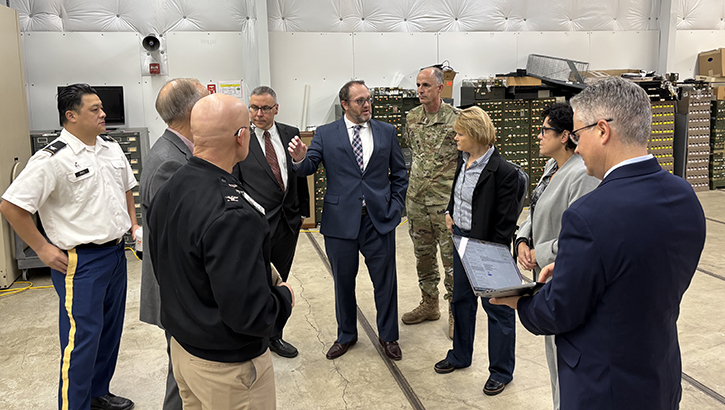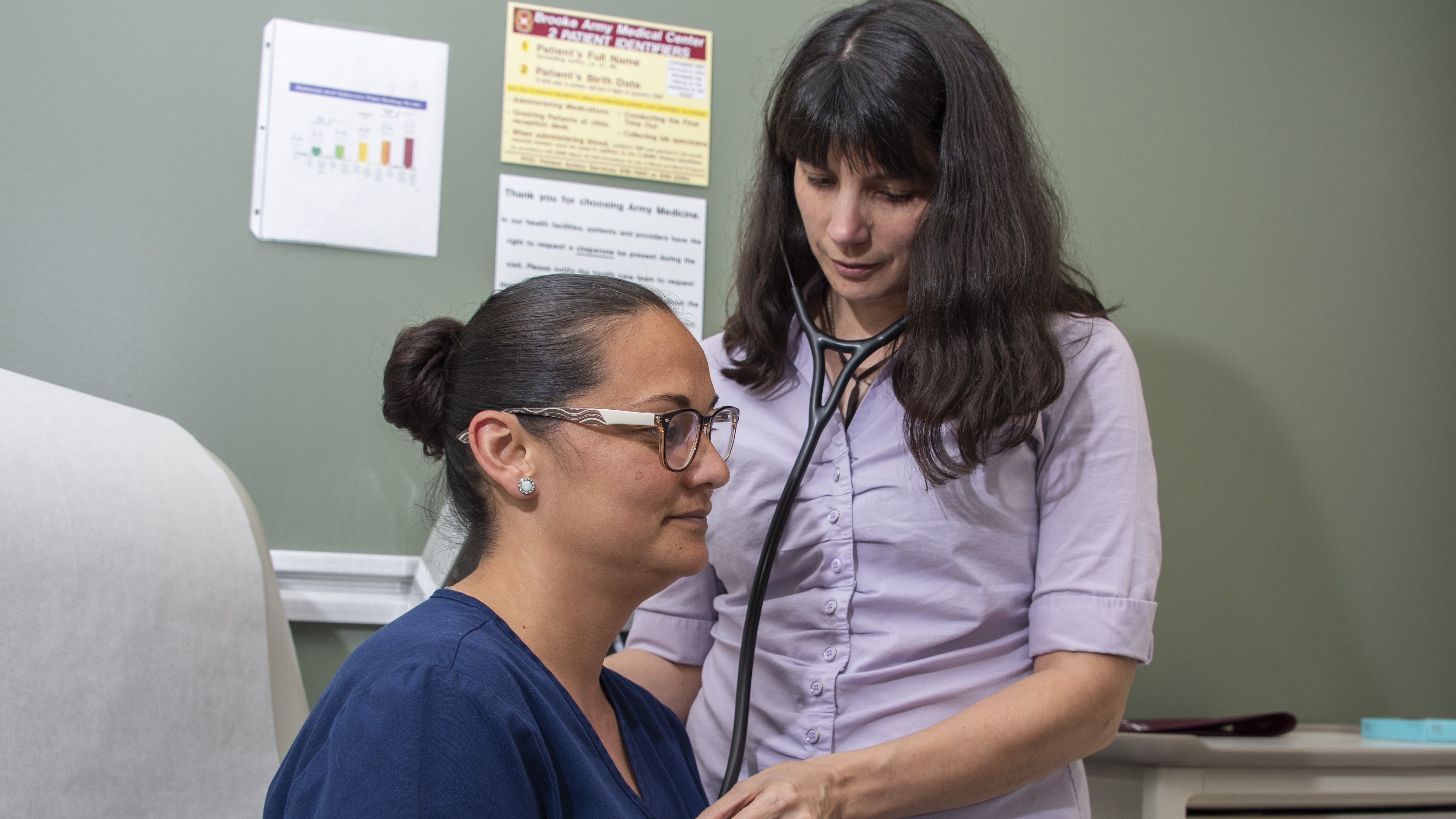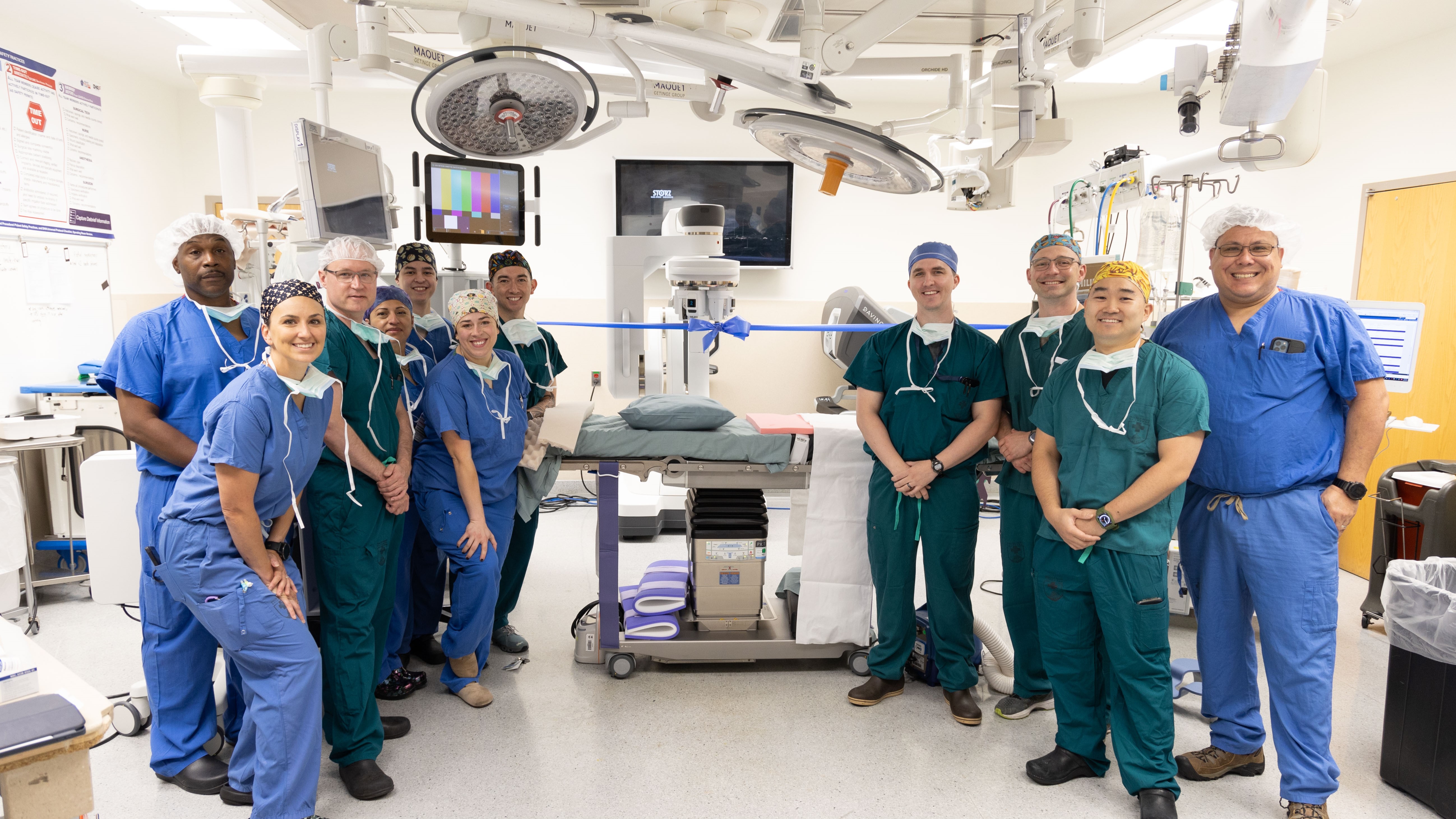Dec. 20, 2024 | By Health.mil Communications
Vision and Mission of the Joint Pathology Center
The JPC’s vision is to be the leading pathology center of excellence in support of the Military Health System and the nation. Guided by this purpose, the JPC focuses on delivering high-quality, cost-effective pathology consultations and education while maintaining, expanding, and digitizing the United States’ oldest and most extensive tissue repository.
“Our vision is clear: to lead in pathology excellence and foster collaboration that drives breakthroughs in medical science,” said U.S. Air Force Colonel Mark D. Lyman, director of the JPC, which is located in Silver Spring, Maryland. “Every step we take is guided by our commitment to improve health care for the people who serve and those who rely on us.”
He emphasized the center’s focus on modernization.
“The Joint Pathology Center stands as a cornerstone of innovation in pathology and biomedical research,” added Lyman. “It combines a historic legacy with cutting-edge technologies to better understand and treat diseases affecting our service members, veterans, and the wider population.”
In October 2024, Acting Assistant Secretary of Defense for Health Affairs Ms. Seileen Mullen along with Acting Principal Deputy Assistant Secretary of Defense for Health Affairs Dr. Dave Smith, and DASD for Health Services Policy and Oversight, Susan Orsega, toured the JPC to better understand how this unique resource facilitates critical biomedical research to enhance understanding of various diseases, develop innovation treatments, and provide valuable insights into health trends impacting the military and broader federal health populations.
Digitizing a Historic Repository
At the heart of the JPC’s work lies a responsibility to preserve, modernize, and expand a tissue repository unmatched in size, diversity, and historical depth. Originally established to support military medical research and diagnostics, the repository now plays a vital role in modern data science research. It provides an unparalleled resource for scientists and pathologists studying diseases that impact service members, veterans, and civilians.
“Digitizing our unparalleled tissue repository is not just about preservation—it’s about unlocking its full potential to accelerate medical discoveries and enhance care for those we serve,” said Lyman. “This effort is transforming pathology by breaking down barriers to access and enabling the development of advanced diagnostic tools, including those based on machine-learning algorithms.”
One of the center’s innovative initiatives includes a pilot program with the Veterans Health Administration that allows JPC to retain VHA tissue samples beyond the typical ten-year holding period, preventing valuable samples from being discarded. This partnership enriches the repository with comprehensive longitudinal data, particularly valuable for studying conditions prevalent among military veterans. By preserving these samples, the JPC enhances the depth and diversity of its collection to advance medical research into the future.
The JPC is also working to digitize this historic collection; in 2024, the JPC expects to digitize over 1.6 million samples. Digitization expands access to these valuable samples by removing physical barriers, increasing opportunities for Department of Defense and Department of Veterans Affairs researchers to study these valuable samples. Digitization also allows JPC to train machine-learning systems on the breadth of the repository’s samples, informing future discoveries and clinical decision support tools.

Innovating Pathology Through Artificial Intelligence
The JPC is on the cutting edge of pathology innovation, collaborating with institutions like the National Institutes of Health to develop and test artificial intelligence algorithms that assist pathologists in diagnosing diseases with greater accuracy and speed.
“High-quality medical data is the most critical factor in advancing medicine with artificial intelligence,” said Lyman. “Through our collaborations with leading institutions and the sharing of de-identified medical data and JPC expertise, we are spearheading the development of advanced tools that enhance diagnostic accuracy, speed, and clinical outcome prediction. These innovations are pivotal in supporting better health outcomes for active duty service members, veterans, and civilians alike.”
These AI-driven tools are part of a broader initiative to leverage machine learning for clinical decision support, particularly in cancer diagnoses. Recently, the JPC contributed to developing the forthcoming guidance document “Artificial Intelligence in Clinical Decision Support for Cancer,” under the cross-federal Cancer Moonshot Data and Innovation Task Force. This document provides federal guidance on implementing AI in medicine, aiming to improve the accuracy of cancer diagnoses and clinical outcome predictions, which is critical for effective treatment and better patient outcomes.
By advancing AI technologies and integrating them into pathology workflows, the JPC strives to enhance the standard of care, ensuring military members, veterans, and American civilians benefit from the latest diagnostic innovations.
JPC's Role in Education and Specialized Training
Beyond diagnostics and research, the JPC is a critical educational resource. The center serves as the sole source of veterinary pathology training for the U.S. military, a vital specialty given the role of veterinary services in protecting both military and public health. JPC’s expert pathologists provide subspecialty pathology training and consultative expertise, supporting the DOD, VA, and other federal agencies with specialized diagnostic and training services. These efforts strengthen federal medical capabilities while also contributing to the global pathology knowledge base.’’
Building a Future of Collaborative Pathology Research
The JPC is well-positioned to continue advancing collaborative pathology research, working with a range of federal and civilian partners to push the boundaries of medical science. As the JPC continues to evolve, it remains steadfast in its commitment to advancing medical knowledge and improving health care for military and civilian populations alike. This recent tour highlighted the importance of its work in supporting the DOD and its mission to protect and promote the health of all those who serve. The JPC stands as a testament to the power of innovation, collaboration, and a shared dedication to improving health outcomes through cutting-edge pathology and medical research.






